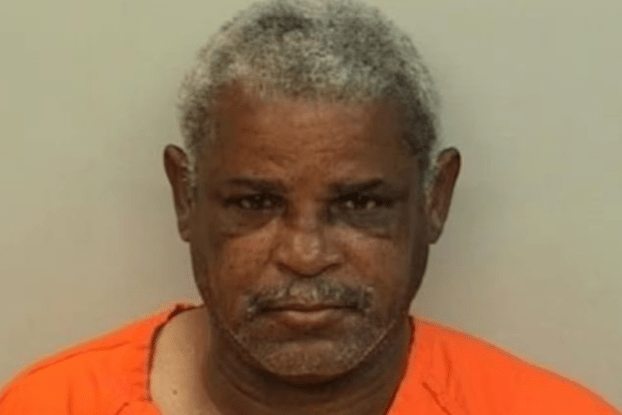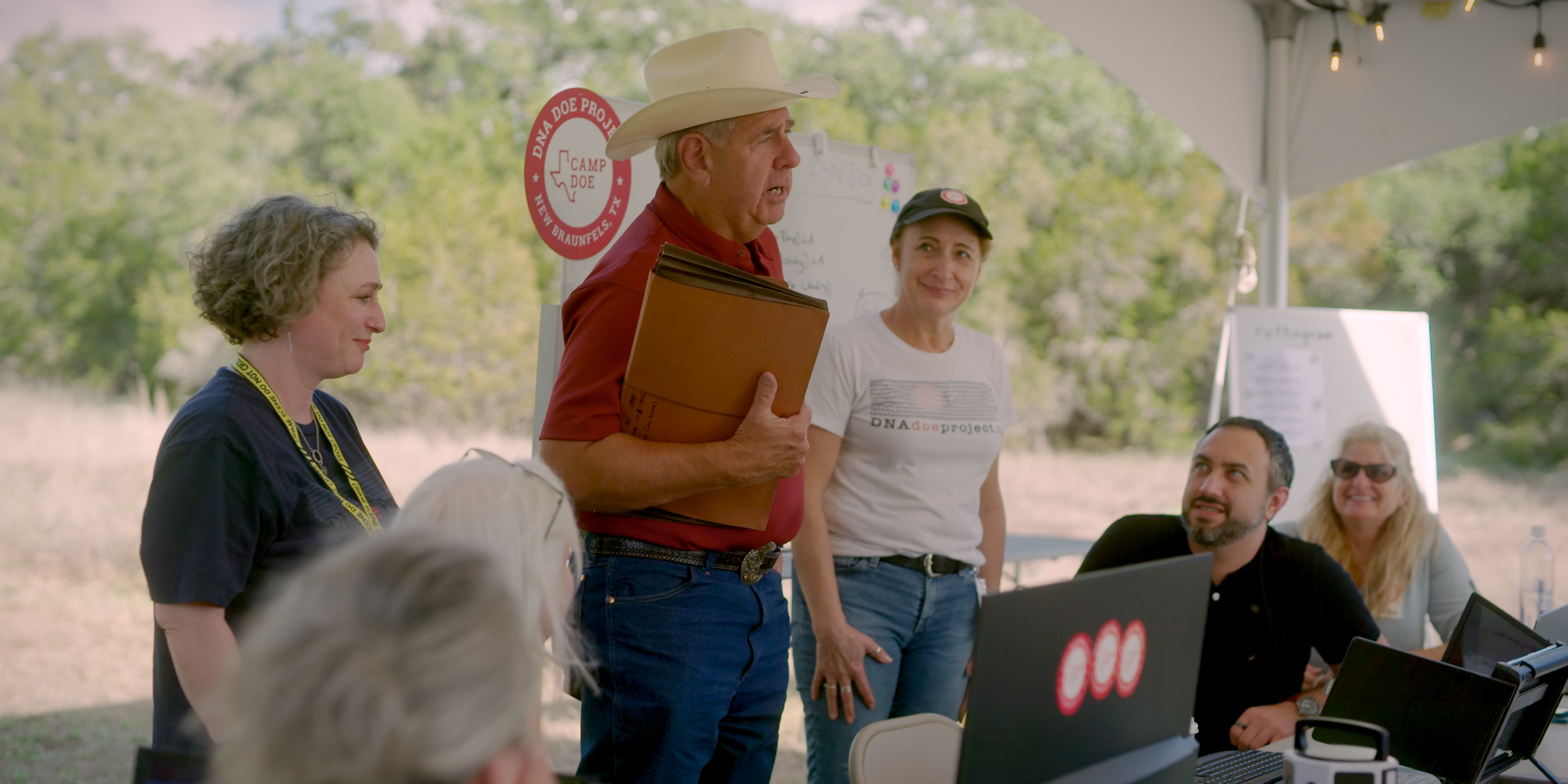Accused makes own opening statement in 1988 rape case
Published 6:48 pm Wednesday, April 9, 2025

- Dartanyan Breaux
A cold case rape trial 37 years in the making got off to a slow start Wednesday morning when the defendant asked the judge for permission to give his own opening statement.
Dartanyan Breaux — accused of climbing through a woman’s window during the July Fourth weekend of 1988, then beating and raping her — asked 14th Judicial District Court Judge David Ritchie for permission to speak to the jurors himself.
“I’m not retarded and I’m not stupid,” Breaux told Ritchie before jurors were allowed in the courtroom. “Everyone involved in the 1988 case is dead. No one can tell my story but me.”
Trending
Ritchie told Breaux this was a request that should have been brought up before the first day of trial.
“You don’t understand what the rules are, you don’t understand what the boundaries are,” Ritchie said. “You indicated to me Monday morning that you had a lawyer here and you were comfortable with Mr. (King) Alexander,” Ritchie said.
Breaux told Ritchie his main concern with the case is what he calls “chain of custody issues.”
“But we will not be able to question the officers involved because they are both deceased,” Breaux said. “I got complication issues with people that are dead.”
Initially Ritchie hesitated in granting the request, telling Breaux he is limited in what he can tell the jurors and his attorney would understand better the scope in what was allowed to be said during an opening statement.
But Breaux insisted that jurors needed to see beyond “the smoke screen.”
Trending
“The facts don’t add up to what I’m being accused of,” Breaux told Ritchie — who ultimately ruled that Breaux could speak to jurors if he stuck to the notes he allowed Ritchie to read first.
When the jury was seated, Breaux — dressed in a blue sportcoat and khaki pants that covered the shackles that had to be removed before he could approach the box — told them to “judge him by what the facts are. All the facts. You were picked for what happened in 1988. If you stick to what the facts are, I’m going home. I got a lawyer and I didn’t want him to do this. I wanted y’all to hear from me. Listen to the facts and we’ll be good.”
Breaux told jurors he had been incarcerated since April 19, 2023, leaving him separated from his wife of 37 years.
“The alleged incident happened at 5 a.m.,” he told jurors. “My wife would know where I was at 5 a.m. We had an 11-month-old son, my wife would know where I was.”
Prosecutor Taylor Alexander, however, told the jurors that in 2023 there was a DNA hit on a hair found when the 1988 rape kit was given that is a perfect match to Breaux.
” ‘Daddy, I just got raped,’ were the words she spoke to her father when she called him,” Alexander said during her opening statements. “She spent her Fourth of July weekend in Humana Hospital for what Dartanyan Breaux did to her.”
Alexander said the woman “still remembers the punches, still remembers him dragging her to the bathroom, remembers waking up with a wet substance between her legs.” Photos later shown to jurors would show the woman with a black eye, swollen and bleeding lip, abrasions on her back and bruises on her breast and elbows.
“He was uninvited, unannounced and unwelcome,” Alexander said. “He beat her, he overpowered her and he raped her. Then two years after 1988, he did it again.”
The victim, who was the first to take the stand, told jurors she lived alone in a four-unit apartment on Gauthier Road when the rape happened.
“It was early morning Sunday and I saw somebody trying to come in my window,” she testified. “First thing I saw was a foot coming through. He obviously couldn’t get in that way so the foot went out. I learned later that he had grabbed a bicycle to help him and then he came in headfirst.”
She said her bedroom lamp was on and she could tell he was a Black man.
“I was frozen in my bed. When he came in, I got out of bed and ran to the kitchen. I picked up the phone to dial the operator because 911 was still new,” the victim testified. “I heard him coming down. I tried to get to the front door. I did open it and screamed but he shut it.”
She said the man then threw her to the ground and started punching her.
“He was on top of me, punching my face,” she told jurors. “Then he dragged me to the bathroom. I was kind of in and out, but I was aware of what was going on.”
She said he pulled her by one of her arms to the bathroom, closed the door and locked it.
The victim testified the rape lasted about 5-10 minutes. “I don’t remember getting up. I don’t remember him getting up. But we ended up back in the bedroom. He tried to talk to me but I don’t remember what he said. He lingered and then he left.”
She said after the man left, she called her family from the kitchen telephone. They are who brought her to the hospital. She never lived in that apartment again, moving in with her parents once she was released by doctors.
When Public Defender King Alexander asked the victim how much she remembers based on her own memory and how much of her statement has been from information told to her, she replied with, “I remember his 3-stripe Adidas shoe coming in first. I remember the freckles across his nose. I remember him penetrating me.”
Then-Humana Hospital ER Nurse Theresa Taft told jurors that a single hair was retrieved during the rape kit. Taft was present during the examination and collected all of the items in the rape kit before sealing it and handing over to law enforcement. The doctor who performed the examination is deceased.
“She was in shock,” Taft said of the victim. “That was a very traumatized young lady.”
Deborah Trahan, a retired forensic analyst for the SWLA Crime Lab, told jurors that DNA testing was not available in 1988. She was however, able to test for seminal fluids, which she found, and test the hair recovered against known samples that confirmed it was from a Black man.
Det. Corey Myers, the last witness of the day, showed jurors a videotaped recording he conducted with Breaux. Myers was assigned the case in 2023 when the DNA match came back to Breaux. Breaux’s hair was in a nation-wide database because he had previously been accused in a 1990 rape cold case. That case was brought to trial in 2010 but Breaux was acquitted.
In the video shown to jurors, Breaux tells Myers that though he married in 1987, he was a sexual “partner” of the woman who eventually accused him of rape. He said the sex was actually consensual and she accused him of rape because he wouldn’t give her money to buy drugs.
He told Myers he never even knew she had filed charges against him until his 2010 arrest.
“After she called police, we were having sex the next day,” he told Myers. “I never even knew she accused me.”
When Myers tells Breaux in the video that he has been linked to a separate rape case that happened on Gauthier Road in 1988, Breaux claims he couldn’t have been the perpetrator.
“Back then in 1988, Blacks didn’t go on that side of town,” he said. “It was segregated that way.”
The trial will continue at 9 a.m. Thursday morning.





